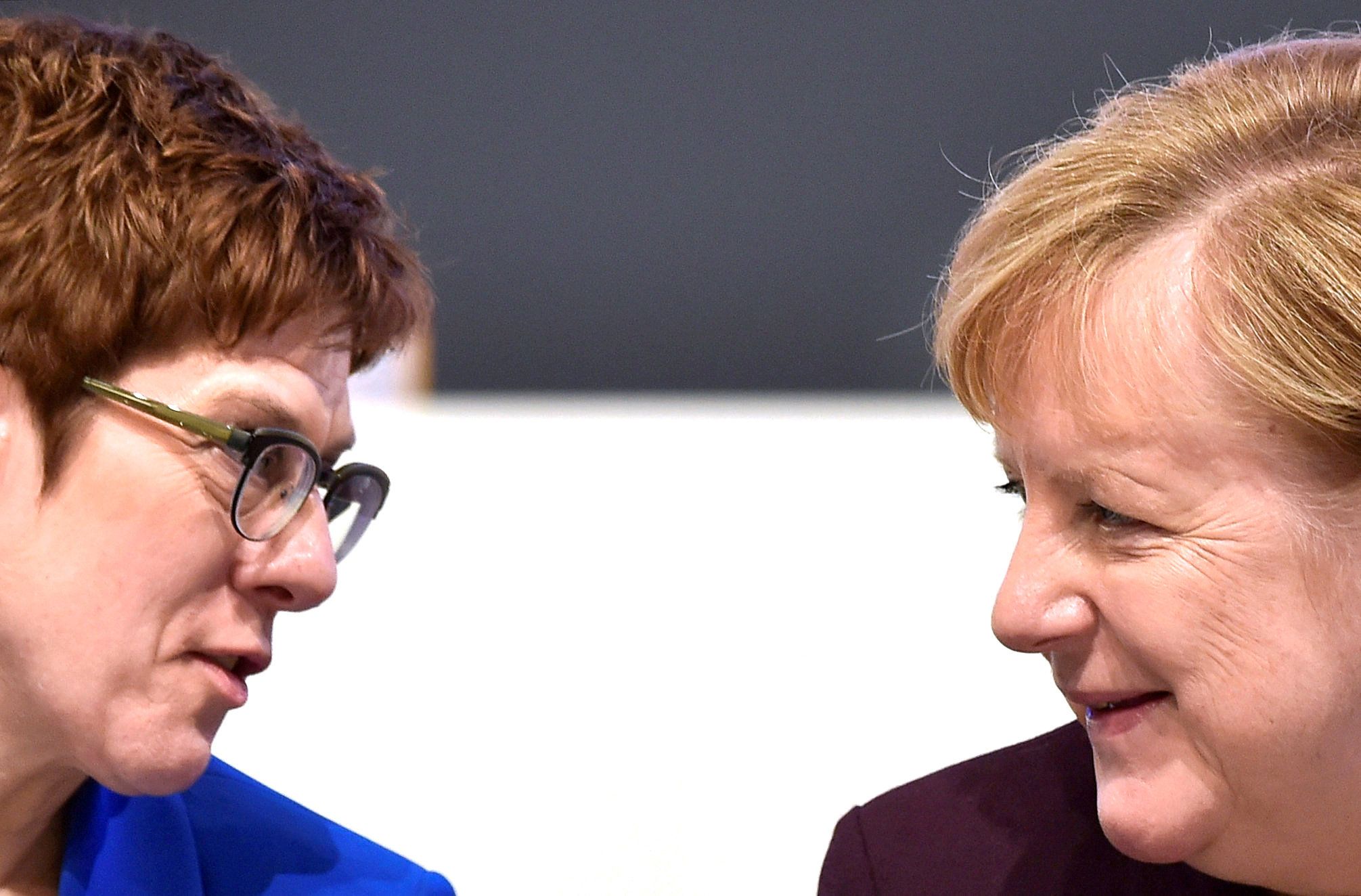News
February 10, 2020
Merkel's search for a successor – When Annegret Kramp-Karrenbauer took the reins of German Chancellor Angela Merkel's CDU party in 2018, she was seen as the obvious successor to Merkel, who will step down next year after 15 years in power. So much for that. Yesterday, Kramp-Karrenbauer (known as "AKK") resigned her CDU post and said she won't run in next year's election. She had come under fire for the party's losses in local elections. Major gaffes about free speech and LGBT rights didn't help. The final straw came last week when a local branch of the CDU defied AKK's warning not to support a local politician who also had the tactical backing of the far-right AfD party, prompting Merkel to intervene directly. AKK's departure throws open the question of succession to Merkel and underscores the tough times for Germany's traditional centrist parties as they face stiff challenges from both the right and the left.
Dead (hit)men tell no tales in Brazil – Brazilian police on Sunday gunned down Adriano da Nobrega, a notorious hitman who was a key witness in the 2018 assassination of Rio de Janeiro city councilwoman Marielle Franco, a critic of police brutality. Nobrega had been sought for questioning, in part because the two former cops convicted of Franco's murder were thought to be members of a paramilitary gang that he ran in Rio. And the plot thickens further: Nobrega, like one of the convicted men, was close to the family of President Jair Bolsonaro. The police say that Nobrega opened fire as they tried to apprehend him, but Franco's friends and political allies are demanding more answers about the death of a man who may have known too much.
Sinn Féin– On Friday, we wrote that Sinn Féin, a party still reviled by some as the political arm of the Irish Republican Army, might break the hundred-year dominance of the country's two mainstream centrist parties. On Saturday, the party finished first in Ireland's multiparty election with 24.5 percent of the vote, almost doubling its 2016 tally. Sinn Fein party leader Mary Lou McDonald has invited other parties to open talks on forming a coalition. We're watching to see if either of the two mainstream parties will do a deal with Sinn Fein, or risk increasing its popularity by allowing it to lead the opposition. What's more, although the party's success had mostly to do with its progressive economic program, it has also called for Irish reunification, an issue that will be back on the agenda soon.
Trivia interlude: If Sinn Fein enters government in Ireland while remaining in a power-sharing deal in Northern Ireland, would it be the only political party in the world to hold political power in two different countries at the same time?
Biblical plagues of animals – Farmers in East Africa are grappling with the worst plague of locusts in living memory. Swarms of the grasshopper-like insects have already swept across parts of Ethiopia and Kenya, and could soon be headed for South Sudan, Uganda, Eritrea, Djibouti, Oman, and Yemen, according to UN experts. Unusually heavy rains from a recent cyclone have contributed to the infestation. So has conflict: one of the locusts' main breeding grounds is in Somali territory controlled by al-Shabab militants, where it's too dangerous for governments to spray effective pesticides. On a far less serious note, hundreds of thousands of bats have invaded the Australian town of Ingham, dropping their feces on schools, sidewalks, and homes and generally making life miserable for the town's badly outnumbered denizens. We were going to ignore this story about a "bat tornado," which frankly sounded like fake news, until we found out there was video.
CORRECTION: A previous version of this post mistakenly said that the CDU had directly supported a member of the AfD in the Thuringia contest. In fact, the CDU had supported a candidate of the Free Democrats Party who at the same time had the tactical support of the AfD. We regret the error.
More For You
Most Popular
Fishing boats moored at Taganga Beach, as fishermen express concern over unclear US government videos showing strikes on vessels during anti-narcotics operations, amid fears that those targeted may have been fishermen rather than drug traffickers, in Santa Marta, Colombia, on October 20, 2025.
REUTERS/Tomas Diaz
Walmart’s $350 billion commitment to American manufacturing means two-thirds of the products we buy come straight from our backyard to yours. From New Jersey hot sauce to grills made in Tennessee, Walmart is stocking the shelves with products rooted in local communities. The impact? Over 750,000 American jobs - putting more people to work and keeping communities strong. Learn more here.
© 2025 GZERO Media. All Rights Reserved | A Eurasia Group media company.
